News feed
„In a New Environment Young People Become More Open and Responsible”
2014. 08. 14.Erasmus+ Programme launched this year covers not only education and training but also youth issues and sports.
Erasmus+ is the new programme of the European Commission, which will provide opportunities for over 4 million Europeans to study, train and gain work experience abroad and 125.000 organisations in transnational partnerships. For its 2014-2020 phase it has a budget of approximately 14.7 billion euros. One of the most well-known and successful programmes of the European Commission has been Erasmus (European Community Action Scheme for the Mobility of University Students, and the name of the outstanding Dutch Renaissance humanist). BME has been a very active participant in the programme and this year it is especially highly ranked among Hungarian training institutions.
Dr. Péter Moson, institutional Erasmus coordinator: A few years ago European Union selected 50 great achievements in its 50 years’ history and one of them was Erasmus; this fact shows how highly the EU values the Programme. Erasmus+ launched this year includes the previously separate programmes like Comenius and Leonardo and brings all of them under one umbrella. In this scheme about half of the budget will be spent on bilateral educational and training projects. According to the Overall Strategy being in force since 2008 student exchange programmes are prioritized within the international activities of the University of Technology. The main reason is that BME aims to keep its best students for their whole higher education period, including the BSc, MSc and PhD levels; at the same time the leadership of the university recognises that international experience is essential for a successful scientific career. We support partial international training from one-week up to two years in length; still the most common are the one-two term long Erasmus exchange schemes. Within the Central Study Office of the University an International and Scientific Section was set up, which operates the Erasmus Office. Furthermore all faculties and other organisational units (f.e. Center of Modern Languages) and the Student Government have Erasmus coordinators; this latter also has an International Office.
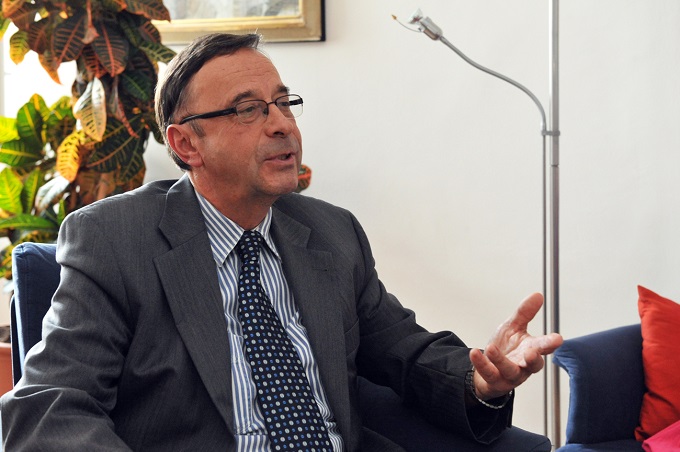
In the past 6 years the number of BME students getting Erasmus grants has been continually growing, it has doubled within this period; only this year some 400 students have been involved. The amount of the grant is centrally determined; it is 300, 400 or 500 Euros/month, depending on the countries students go to. For example students going to Poland receive 300 Euros, those who go to France get 400 Euros, while the monthly amount to Sweden is 500 Euros.
Which countries are the most popular among BME students? In the programme all countries of the European Union and also Norway, Iceland, Lichtenstein and Turkey participate; Hungarian students take the grant for 4-5 months on average.
Dr. Péter Moson: They are Germany, Spain, Italy and Portugal. The bilateral agreements define how many students can be sent to and received from each country.
|
Anna Szenczi, coordinator of the Erasmus office mainly dealing with Hungarian students studying abroad: Students normally choose five institutions and they are ranked according to their performance; with „good” result (mark 4 in Hungary) they are usually accepted by the first institution in their list of preferred universities. There are very popular receiving universities, which require even better results; for example there are more applicants to the Delft University of Technology than the institution can receive. Students in technical type programmes prefer the Netherlands region. Students of the Faculty of Economic and Social Sciences (GTK) are in a less favourable situation because we have fewer bilateral agreements available for them; they have opportunities mostly in the Southern European region. In Northern Europe mostly students in technical programmes are accepted but living costs are fairly high in these countries, therefore relatively few students apply there. In Scandinavia the 500 Euro monthly amount covers only accommodation; the parents’ support is also needed. Now two-thirds of the students make preparations for the Erasmus term; many of them take jobs to be able to cover the costs of the studies abroad. There is also social funding available for students who are entitled to receive benefits in Hungary as well. |
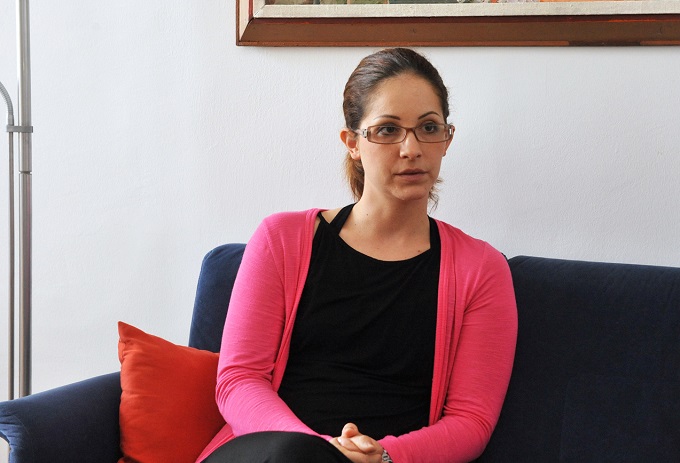
How many students do we receive from other countries of Europe?
Dr. Péter Moson: Many arrive to study and also for practical placement. We have contacts with the students who arrive to take part in our educational programmes; the others directly join the faculties or companies. When the application is closed we can see how many students are allowed to participate in training and practice. The University applies to the Erasmus office for the grant and when it is approved we know what budget we have received and how many students can be involved. In the next term 312 students are receiving grants for their studies and further 100 students for practical placement; their stay abroad will be supported by the programme. With these numbers we are on the third-fourth position among Hungarian universities. ELTE and Corvinus Universities have received over one million Euro budget with the same conditions. (Editor’s note: University of Pécs is also on the third-fourth place, the fifth is the University of Szeged. BME received 8.5% of Hungary’s total funding, 923.850 Euros. Our budget for the next academic year is 22% higher than the previous year’s amount.)
The “Mobility Target 2020” programme of the European Union states that by 2020 20% of university graduates should have undertaken at least 3 months’ study or training period abroad or cover 15 credits in a foreign educational institution. Our aim is to include this target in the Development Plan of BME. At present about 10% of the students fulfil these criteria.
| Gabriella Zsadányi from the Erasmus office dealing with foreign students and contracts: About 300 students arrive at our University each term mainly from France, Spain and Germany. There are relatively large numbers of students from Turkey as well. In the past few years there has been a significant growth in the number of German students, now we have about 40 of them for technical and economic studies as well. French and Spanish students prefer the architectural training programme; at their most prestigious universities it is a requirement to spend a term abroad. |
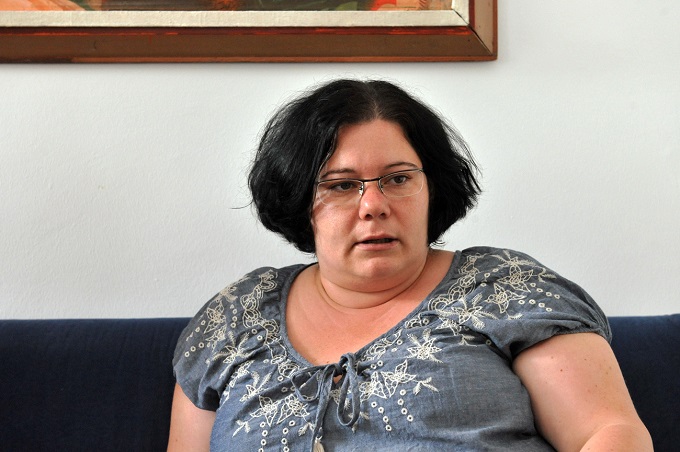
Higher educational institutions wishing to join the Erasmus Programme must have an approved Erasmus University Charter. They are required to apply to the European Commission for approval, which is valid for 7 years. The Charter includes the principles and guidelines the institution is obliged to adhere to. The common principles are: making bilateral agreements, full recognition of credits, and that no tuition fee or any charges can be taken from Erasmus students. Further guidelines are high-quality organisation of placement, providing current and precise information on the programmes, using credit system, providing equal services and quality for Erasmus students and supporting their integration.
All persons interviewed have confirmed that these principles and guidelines are all fully observed at BME. Regarding Hungarian students’ experiences abroad, they are required to prepare two reports: one for the University and another for Tempus Public Foundation, the national Erasmus coordinator. Some Hungarian students have complaints about organisational issues at receiving institutions but the general experience is that our students are able to cope with the challenges, solve upcoming issues and they learn independence.
Dr. Péter Moson: Erasmus Student Network supports foreign students arriving in Hungary from finding accommodation to general orientation. Other receiving universities also have mentors to help newcomers. Unified (not only quality) organisation also improves: bilateral Erasmus+ agreements more clearly define important details, for example the language of the programme, application deadlines and practical training certificate forms than previously.
| Anna Szenczi and Gabriella Zsadányi, coordinators of the Erasmus office: The practical training certificate used to be only a signature; this was the confirmation necessary to receive the grant. There was no information about the name, address or tax office registration number of the given company, it was impossible to verify by ourselves or the Tempus Public Foundation what practice the student has performed exactly or if the company exists at all. Now the “MobilityTool” software includes the data of the universities and the companies involved and the information has to be verified. |
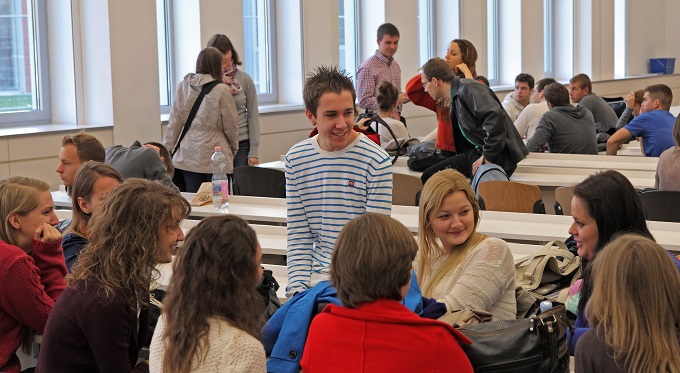
How is the application procedure? The EU and Tempus in Hungary set the guidelines and each institution decides how to apply for the grant or faculties apply individually? Is there a uniform evaluation scheme?
Dr. Péter Moson: The calculation system by which the University receives the grant is more or less replicated on the faculties’ level; all faculties are ranked. On the faculties’ level the applications are individually evaluated and the places are filled accordingly. The framework is defined by the rector’s decree: the main conditions are active student status at BME, good performance (minimum mark 3.5 in the Hungarian system between 1 and 5) and at least one language exam. Professional and community achievements are also considered, like publications, participation in conferences and active community work. The requirement systems of the faculties are published on their websites.
|
Anna Szenczi and Gabriella Zsadányi: Faculty coordinators prepare the ranking list of the students according to their applications and send the information to the University’s central Erasmus office. The data include the names of students who received the grant, the receiving institutions and the length of the placement. Next BME officially informs the relevant partner institutions about the decision. Students are required to contact receiving institutions directly and make the necessary arrangements on their own. We usually organize orientation forums to support them. The Erasmus form published by Tempus Public Foundation includes all rights and obligations of Erasmus students in Hungarian language. This form is the official contract; by signing it students become Erasmus grantees officially. Are there any drop-outs? Anna Szenczi and Gabriella Zsadányi: We have got a waiting list so we have never sent fewer students than the available places. |
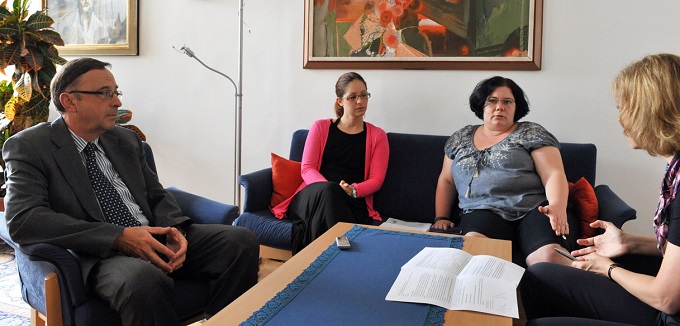
According to the reports from former Erasmus students the foreign experiences improved their chances in the labour market after graduation. BME students return from abroad with new skills and approaches. What changes does the Erasmus placement bring?
Dr. Péter Moson: Students organize their travel and stay abroad themselves, they get in a new environment and meet different educational systems. All this is much more important than the actual knowledge they get abroad. They become more open and more mature. It is important to highlight this fact because there are always doubtful voices saying that they waste their time, do not study enough, they are just tourists partying all the time. On the contrary they are required to get 21 credits and they study together with students coming from all over Europe and the world. At Valencia University in Spain there are 3.000 Erasmus students. Erasmus is a huge system, a melting pot and at our University there is a proper balance: the same number of students arrive and leave each term. The Student Government played a great role in creating a modern and accessible system.
The university of Technology and Economics has developed good partnership with the Tempus Public Foundation as well. When there is some remaining amount in the national budget, we always apply for it to be able to send even more students abroad. This academic year we have gained some extra places three times. It is also important that first time this year students within one year after graduation, having active student status can participate in granted projects. According to the long-term central plans the circle of institutions involved will be extended over the borders of Europe to provide even more opportunities.
-TJ-
Photos: János Philip, Árpád Bakcsy
